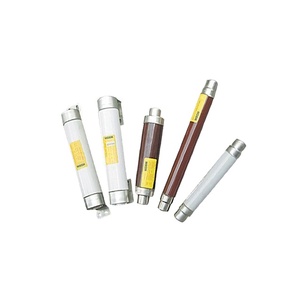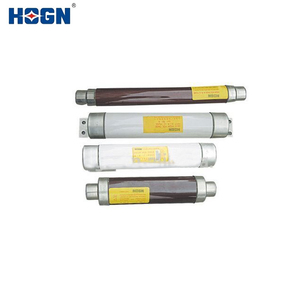
All categories
Featured selections
Trade Assurance
Buyer Central
Help Center
Get the app
Become a supplier

(986 products available)













Fuse wire composition serves as a critical safety element in electrical systems worldwide. When discussing the various types of fuse wire, one can categorize operational elements based on the materials used in their construction. Such differences in materials also lead to differences in conductivity, melting point, and, ultimately, application efficiency.
Some common types of fuse wire compositions include:
Copper Fuse Wire
Copper is one of the most frequently used materials for fuse wire composition. This is because it has good conductivity, which contributes to its wide application. Copper wires are usually insulated to improve their melting point and, as a result, their durability. These fuse wires are ideal for use in light circuits and other home appliances that require moderate electrical flow.
Aluminum Fuse Wire
Although less conductive than copper, aluminum has a much lighter and less expensive wire option. Fuse wires made from aluminum are usually used in high-voltage power transmission lines because of their light weight and the large amount of wire that can be used without adding excess weight to the system.
Nichrome Fuse Wire
Nichrome comprises nickel and chromium alloy and has high resistance and a very high melting point. Because of its unique properties, nichrome fuse wire works best at high temperatures, such as in electrical devices that experience extreme heat. Such devices include ovens and industrial furnaces. This wire can also be used when the current needs to be tightly controlled, as in precision equipment.
Silver Fuse Wire
While copper, as mentioned, has a very good conductivity, silver boasts even better conductivity, although it is more expensive. Silver fuses can also be used for critical applications where optimum performance is required. They are commonly found in aerospace and medical equipment. The expensive nature of this material limits its wide usage.
Lead Fuse Wire
Lead wires, which are low-cost and offer low melting point, often have added alloys with other metals like antimony. This, therefore, makes lead fuse wires ideal for low-voltage applications and backup systems. They are also commonly used in automotive circuits and older electrical systems, which helps prevent overheating.
When it comes to electrical safety, durability is a very important consideration in the case of fuse wire. Beyond just blowing or melting, as expected, durable fuse wires are reliable and can withstand extreme conditions for a longer time. Such durability relates to materials used in the composition of the wire, the environmental factors the wire is exposed to, and the manufacturing process.
Material Strength
Fuse wires are made from high-quality materials like copper, aluminum, nichrome, and occasionally silver, which have decent tensile strength and resist breaking or deforming under physical stress. Durability also relates to how well these materials can handle the normal currents that run through them. Further, how well they tolerate surge currents without snapping or degrading is, therefore, imperative for maintaining system integrity.
Furthermore, alloy compositions, like nichrome, offer superior durability due to their resistance to oxidation and degradation. This makes them ideal for long-term applications in harsh environments.
Corrosion Resistance
Environmental conditions also determine the durability of fuse wire. Fuse wires are typically exposed to moisture, chemical agents, and air, which can cause corrosion, significantly weakening the wire and making it more prone to failure. Thus, corrosion-resistant materials like silver and nichrome, which form a protective oxidant layer that protects sludge from deterioration, are ideal for use in adverse environments. These wires ensure that the wire retains its structural and functional integrity over time.
Heat Resistance
This is yet another important factor in the durability of fuse wires. Since, in most applications, fuse wires will be exposed to electrical currents that will generate heat, it is important to have a composition whose melting point is very high, such that it can tolerate this heat without melting or breaking.
For instance, nichrome alloy withstands extreme temperatures, making it ideal for high-temperature applications. In addition, fuse wires need to resist thermal expansion and contraction. Such frequent changes in shape can easily lead to material fatigue.
Low Temperature
In addition to high heat resistance, many fuses should be able to withstand very low temperatures. Failing carrying these features can easily lead to brittleness, and such will break under the slightest mechanical stress. In such cases, the wires commonly used have materials such as lead or silver, which maintain their flexibility even under very low temperatures.
Industrial Electrical Systems
Fuse wires are used in these systems to protect machinery and equipment from electrical overloads. Moreover, due to the large currents and voltages in these environments, fuse wire compositions with high melting points, such as nichrome, are required.
Domestic Appliances
People commonly find fuse wires in appliances such as ovens, washing machines, and refrigerators. In these situations, lead, copper, and silver fuse wires are preferred for their reliability and low melting points, since these appliances usually operate at moderate electrical.', partial_summary=1)
Automotive Systems
In cars and other vehicles, fuse wires protect different electrical circuits and avoid overload. They most commonly use copper and lead fuse wires. These wires have low melting points and are suitable for the lower voltages found in automotive systems. Moreover, the wire has to be very durable, as some will be exposed to extreme heat, vibration, and humidity.
Power Transmission Lines
Here, the fuse wires used in the sections of the transmission lines that can be temporarily taken out of service for maintenance or repairs, often referred to as inoperable sectioning, are known as "fuse bridges." In these high-voltage ranges, aluminum fuse wires are lightweight yet capable of carrying a large electrical current without easily snapping or overheating.
Electronic Devices
These devices use fuse wires to protect against short circuits and power surges. Smart gadgets, phones, and tablets typically take advantage of having silver fuse wires to avoid overload and electronic malfunction. The reason is that silver wire has excellent conductivity; thus, it can easily provide a current until an overload occurs, after which it melts to protect the device.
Marine and Aerospace
The industry prefers fuse wires made from corrosion-resistant materials such as nichrome and silver. The electrical systems on ships, boats, and aircraft are exposed to harsh marine environments or high altitudes, which may affect the functionality of the fuse wires. This is why they have to be extra reliable.
The right fuse wire composition is very important for the electrical system's safety and reliability. Several factors should be considered when making this choice.
Melting Point
A high melting point ensures that the fuse wire can handle normal electrical currents without melting, while a low melting point allows it to blow quickly in the event of an overload. Thus, it is always important to select a wire with the right balance of melting points for the specific application in question. For high-temperature environments, use fuse wires that have a much higher melting point, such as nichrome. For low-temperature environments, ordinary appliances use copper or lead.
Electrical Conductivity
Fuse wire should be able to conduct electrical currents efficiently during normal operations. The most conductive of them all is copper, closely followed by silver. This is why fuse wires should be chosen to have excellent conductivity to reduce resistance and, in turn, avoid overheating.
Wire Gauge
Wire gauge is yet another important consideration. The gauge of the fuse wire determines how much current it can handle before it blows. A thicker wire will support more current without easily blowing. Conversely, thinner wires will blow at lower currents. In choosing the right wire gauge, the electrical load of the application in question should be taken into consideration and the wire gauge matched accordingly.
Corrosion Resistance
As mentioned earlier, corrosion can significantly weaken fuse wire over time, making it prone to failure. The end environment drastically affects the wire's durability; thus, one must certainly choose corrosion-resistant materials like silver or nichrome. This is especially true for marine, industrial, or outdoor conditions.
Cost and Availability
Different fuse wire compositions have varying costs based on materials and applications. While silver has exceptional conductivity, it will also be prohibitively expensive. Fuse wire made from copper, while cheaper, is just as efficient for most household needs. Therefore, as much as one wants to get the best possible durability, electrical safety, and reliability, one must also consider the budgetary constraints and the wire's availability.
The most common materials used to compose fuse wire are copper, aluminum, nichrome, and silver. Copper boasts excellent conductivity and is moderately priced, which makes it ideal for numerous low to medium voltage applications. Aluminum is lightweight and affordable, often used in high-voltage power lines. An alloy of nickel and chromium, which is called nichrome, has a very high melting point and oxidation resistance, making it perfect for high-temperature applications.
Corrosion gradually eats away the wire's material, thus weakening its structural integrity, making it prone to failure. It can occur due to exposure to moisture, chemicals, or salty air, which could easily degrade the wire over time. Just fuse wires made of corrosion-resistant materials like silver and nichrome, which are ideal for adverse environments, will continue to maintain functionality over time.
Fuse wires must be able to withstand the electrical current that generates a considerable amount of heat. Only those wires with high melting points, such as nichrome, can resist this heat without melting or degrading. That is why these compositions are ideal for industries where thermal cycles are very common. Otherwise, thermal expansion/contraction can cause typical materials to undergo fatigue and, thus, failure.
Even though this wire has the best conductivity and is the most expensive, silver fuse wires are generally ideal for critical electronic devices. Because it offers excellent protection against electrical surges and overheating, aerospace and medical equipment are common places where its superior conductivity will perform vital functions.
When making a choice of which fuse wire composition is to be used, it is important to consider the melting point, electrical conductivity, wire gauge, corrosion resistance, and cost. These factors determine the wire's suitability for an application, as overload protection, environmental conditions, and current capacity must be met.